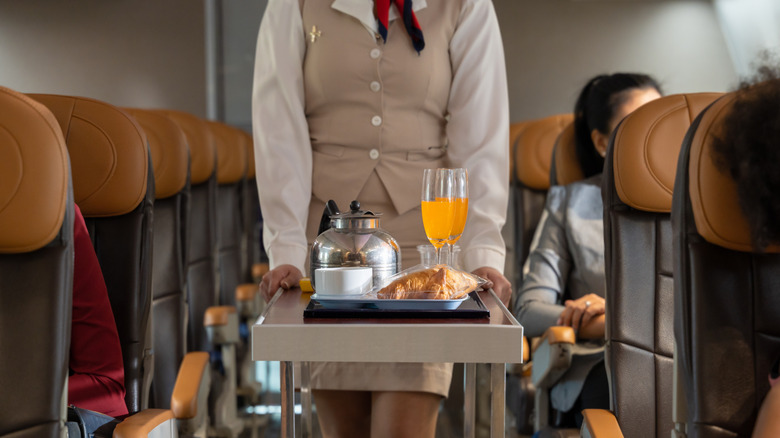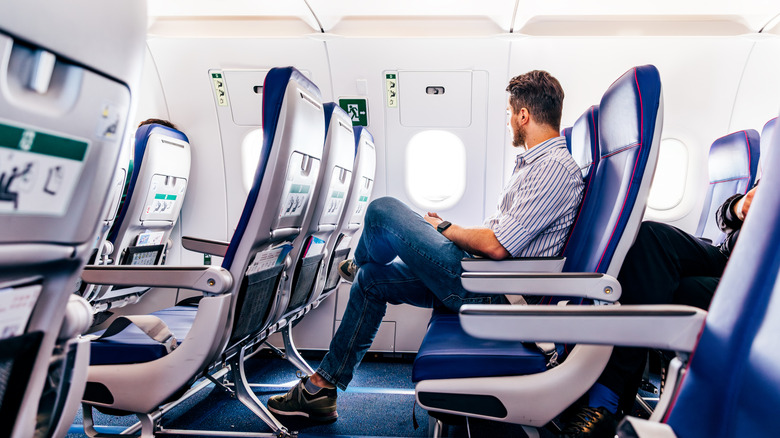A New Study Might Change How Airlines Approach People With Food Allergies
We may receive a commission on purchases made from links.
If you've been traveling for long enough, you probably remember back in the day when flight attendants offered airplane snacks like nuts as an on-board treat. That mostly came to an end with the rise in awareness of nut allergies over the years, as it was widely believed that the "dust" from nuts could become airborne and cause allergic reactions, which can be deadly for those with extreme allergies. However, new research suggests that not only has this risk been overblown over the years, but food-related allergic reactions are actually more common on the ground than when you're flying.
A review published by the British Medical Association (BMA) analyzed research concerning the conditions of a commercial aircraft and how threatening nuts could be if served in this confined space. It turns out that the aircraft's ventilation system is great at filtering out nut dust and particles in the air, and the biggest nut-tastrophe for people with allergies actually comes from surfaces — the seats, tray tables, and screens.
Some airlines, like Delta, encourage passengers to note if they have allergies on their reservations, and they are allowed to board early so they can wipe down their areas. Studies have found that using commercial wet wipes to clean surfaces is quite effective at removing allergens, so this is arguably a much bigger factor in preventing adverse reactions than avoiding airborne "nut dust" on a plane. With the revelation of this new study, it's possible we may see a different approach to food allergies from airlines.
How airlines deal with passenger allergies
In 2010, the U.S. Department of Transportation tossed around the idea of peanut bans on airlines. At the time, several airlines, like United, US Airways, and JetBlue, had already stopped serving nuts in response to customer requests (and, more likely, complaints). It probably didn't hurt that cutting complimentary nuts ended up saving them millions per year. Southwest, which had long used peanuts as a marketing tactic, finally jumped on the bandwagon in 2018.
Airlines each have their own policies for dealing with allergic passengers, so people with allergies should do their research to find the most accommodating flights. For example, some airlines will create "buffer zones," and many also stock EpiPens onboard just in case. Others will announce the presence of allergies on a flight to encourage consideration from fellow passengers, while some may alert only nearby passengers to be more discreet. Many airlines also offer special meals and snacks.
While this new research may change some allergy policies for airlines (like more companies offering pre-boarding wipe down service), allergic passengers should still take precautions while traveling. The BMA study also found that people tending to be more cautious than usual when traveling was a big contributing factor to fewer food allergy reactions in the air than on the ground. This means carrying an EpiPen if needed, communicating with airline staff, and flying earlier in the day. Insider tip — if you're flying internationally, SelectWisely makes nut allergy cards in 72 languages.

